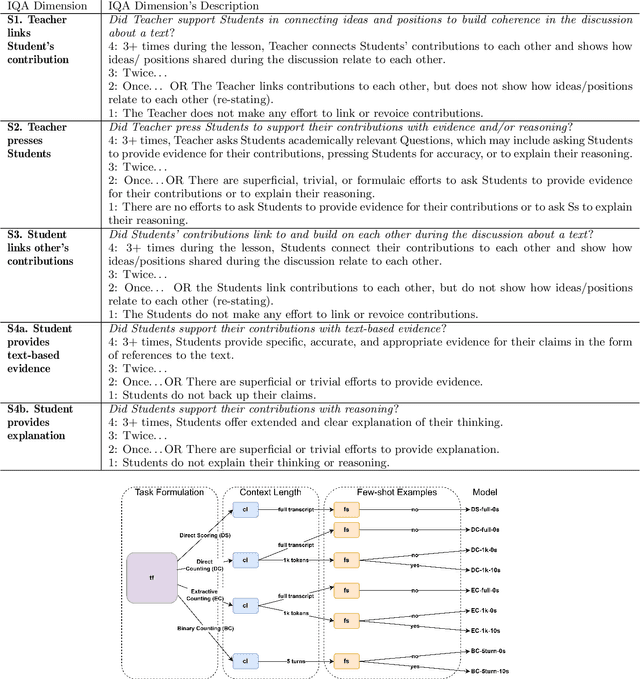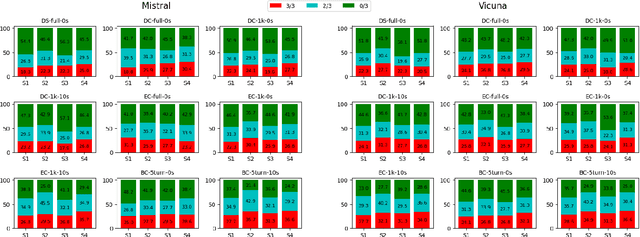Analyzing Large Language Models for Classroom Discussion Assessment
Paper and Code
Jun 12, 2024



Automatically assessing classroom discussion quality is becoming increasingly feasible with the help of new NLP advancements such as large language models (LLMs). In this work, we examine how the assessment performance of 2 LLMs interacts with 3 factors that may affect performance: task formulation, context length, and few-shot examples. We also explore the computational efficiency and predictive consistency of the 2 LLMs. Our results suggest that the 3 aforementioned factors do affect the performance of the tested LLMs and there is a relation between consistency and performance. We recommend a LLM-based assessment approach that has a good balance in terms of predictive performance, computational efficiency, and consistency.
* EDM 2024 Short Paper
 Add to Chrome
Add to Chrome Add to Firefox
Add to Firefox Add to Edge
Add to Edge